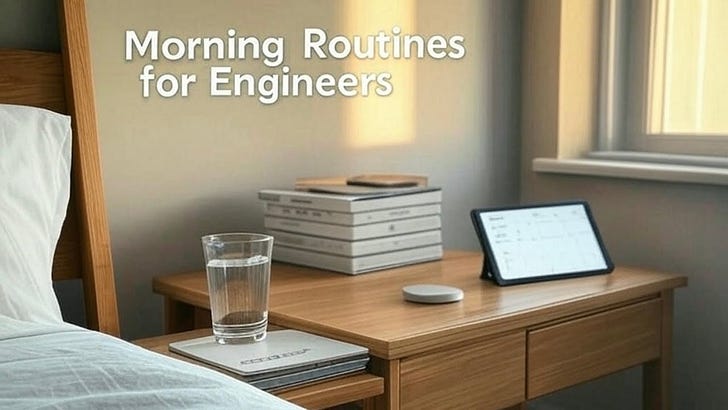Receiving feedback challenges many engineers, but I'll show you how to transform it from a dreaded experience into a career accelerator. Mastering feedback - giving and receiving - will fast-track your growth, strengthen your relationships, and develop you into a well-rounded engineer.
Many engineers view feedback as criticism rather than an opportunity for growth.
Fear of Judgment Holds Us Back
Engineers struggle with feedback for these key reasons:
Perfectionism: Our education trained us to seek perfect answers. Now we must learn to embrace failure as a growth opportunity.
Defensive Reactions: Rushing to explain or justify prevents learning and undermines honest feedback.
Lack of Framework: Missing a systematic approach to process and act on feedback
Professional Identity: Overattachment to being "right" as part of our engineering identity
You can develop these crucial skills with the right mindset!
Your Action Plan:
Create a Feedback Tracking System
Establish a structured feedback system. Maintain a dedicated notebook or digital document to record both positive and constructive feedback. Create a table with columns for Date, Project, Feedback Received, and Action Items. Record feedback with specific improvement steps. This approach prepares you for performance reviews and enables meaningful reflection.
Practice Active Listening
Listen fully before responding to feedback. When a reviewer suggests improvements to your calculations, resist defending immediately. Instead, take notes, express gratitude, and schedule time to discuss improvements later. This approach builds team trust and demonstrates professional maturity.
Implement the "We" Mindset
Transform feedback through collective ownership. This shifts the conversation from personal criticism to team improvement. Replace "Your design needs better documentation" with "We can strengthen our design documentation by providing team templates." This language promotes collaboration over blame.
Key Summary
Engineers face challenges with feedback due to perfectionism and defensiveness
Success demands a structured tracking system and active listening
The "we" mindset transforms feedback into collaborative improvement
Regular reflection and documentation accelerates professional growth
Psychological safety and trust enable effective feedback exchanges














Share this post